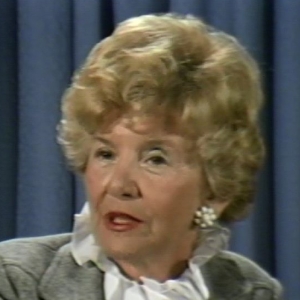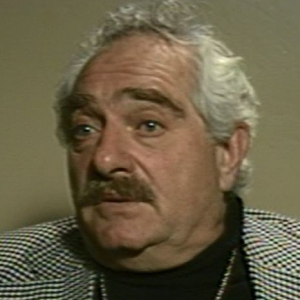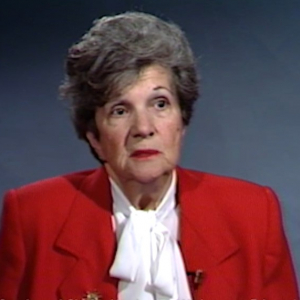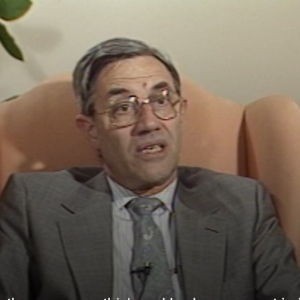Lonia Tiefenbach
Lonia Tiefenbach describes encountering antisemitism and anti-Jewish measures in Poland, before the Second World War.
Lonia Tiefenbach (née Belzycka) was born in 1920, in Tomaszow, Poland. Lonia’s father’s Pinchas operated a large tailoring shop in the town, and her mother Malka looked after the family. Lonia had two sisters, and two brothers and the family considered themselves traditionally religious. Lonia spoke Polish at school and loved Polish literature and culture. She had ambitions of attending Polish university. At home, the family spoke Yiddish.
In 1939, Lonia was working in Warsaw when war broke out and left to join her family in Tomaszow. Shortly thereafter a ghetto was formed, and the family was relocated there. Conditions in the ghetto were harsh, and round-ups and killings frequently took place at night.
In Spring 1943, Lonia was deported from the ghetto to a forced labour camp in Bliżyn. There, Lonia worked as a seamstress until 1944 when she deported to Auschwitz-Birkenau. A short time later, Lonia was again deported to a subcamp of the Flossenburg concentration camp at Wilischthal, Germany. Eventually, as the defeat of the Germans was imminent, Lonia was deported to the Theresienstadt concentration camp in the former Czechoslovakia. She was liberated in May 1945 by the Soviet Army.
In 1947, Lonia now married to Leon Tiefenbach, moved to British Mandate Palestine. In 1951, Lonia, and her family immigrated to Toronto, Canada.
Lonia Tiefenbach died in 1995 and her full testimony is part of the Canadian Collection of Holocaust survivor testimonies. It is preserved in the USC Shoah Foundation’s Visual History Archive and accessible through the Ekstein Library.
Lonia TiefenbachThis the first time that I felt that I am not the same.
Testimony to discover
-
Liberation

Vera Slyomovics
Vera Slyomovics describes her liberation experience.
Listen -
Camp

David Zuckerbrot
David Zuckerbrot recalls conditions in the Nazi concentration camps.
Listen -
Physical Resistance

Tania Siegel
Tania Siegel discusses the challenges and struggles of life with the partisans.
Listen -
Liberation

Elly Gotz
Elly Gotz recalls being liberated by the American army at the Dachau Concentration Camp.
Listen
Educators & Students
Educational guides
Check resources